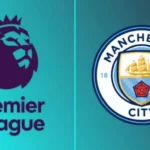Man City 115 charges reality is clear after shock relegation confirmed as Arsenal watch on

The football world was stunned this week as Lyon, one of France’s most storied clubs, received a provisional relegation to Ligue 2 despite finishing sixth in Ligue 1. This dramatic development has inevitably drawn comparisons to Manchester City’s ongoing case involving 115 charges of alleged financial breaches. However, as Arsenal and other Premier League clubs watch these proceedings unfold, the reality of what Lyon’s punishment means for City’s situation is far more complex than many realize.
The Lyon Precedent: A Different Beast Entirely
Lyon’s relegation represents a stark reminder of how seriously football’s governing bodies are taking financial regulations. The Direction Nationale du Controle de Gestion (DNCG), French football’s financial watchdog, made this unprecedented decision not as punishment for past transgressions, but as a protective measure for the future integrity of Ligue 1.
The club’s debts have spiraled to over £420 million, creating what the DNCG views as an existential threat to both Lyon’s survival and the stability of French football’s top tier. Without Champions League qualification for the coming season, Lyon faces a perfect storm of reduced revenue and unchanged expenses that could lead to financial collapse during the season.
This provisional relegation serves multiple purposes. Primarily, it forces Lyon’s hand in making immediate, drastic changes to their financial structure. The club has already begun this process, with the sale of promising midfielder Rayan Cherki to Manchester City for an initial £30.5 million and the release of high-earning veterans like Alexandre Lacazette. The DNCG’s message is clear: cut your cloth accordingly, or face the consequences.
The French approach demonstrates a proactive stance that prioritizes the league’s stability over individual club ambitions. It’s a wake-up call that financial fair play isn’t just about historical accountability but about preventing future disasters that could ripple through entire league structures.
Manchester City’s Unprecedented Legal Battle
While Lyon’s situation provides compelling drama, drawing direct parallels to Manchester City’s case requires careful consideration of fundamental differences in both the nature of the alleged breaches and the regulatory frameworks involved.
Manchester City faces up to 130 charges spanning over a decade, primarily focused on alleged historical breaches of Premier League financial regulations. These charges center on accusations that the club provided misleading financial information, failed to cooperate with investigations, and potentially circumvented Financial Fair Play rules through creative accounting and inflated sponsorship deals.
The complexity of City’s case cannot be overstated. Unlike Lyon’s straightforward debt crisis, City’s charges involve intricate questions of accounting practices, the true nature of sponsorship arrangements, and whether the club deliberately misled regulators about their financial position during their period of massive investment and success.
The legal proceedings have been ongoing for years, with City vehemently denying all charges and challenging the Premier League’s jurisdiction and procedures at every turn. This isn’t a case of obvious financial distress requiring immediate intervention, but rather a detailed forensic examination of alleged regulatory manipulation that requires extensive legal deliberation.
The Arsenal Perspective: Watching and Waiting
For Arsenal, Manchester City’s case represents both a sporting and philosophical challenge that goes to the heart of modern football competition. The Gunners have watched City dominate English football for over a decade, winning multiple Premier League titles during periods when the alleged breaches were supposedly taking place.
Arsenal’s own approach to financial management has been markedly different. Under both Arsène Wenger and Mikel Arteta, the club has generally operated within established financial parameters, sometimes to the frustration of supporters who wanted more aggressive spending. The irony hasn’t been lost on Arsenal fans that their more conservative approach may have cost them competitive advantages while potentially rule-breaking rivals accumulated trophies.
The psychological impact on Arsenal cannot be understated. Knowing that their primary title rivals over recent seasons may have gained unfair advantages creates a complex emotional landscape. There’s the frustration of potentially missed opportunities, the anger at perceived injustice, and the uncertainty about what any eventual punishment might mean for past achievements and future competition.
From a strategic standpoint, Arsenal must continue planning and investing as if the competitive landscape will remain unchanged, while simultaneously preparing for scenarios where City might face significant sanctions. This balancing act requires careful resource allocation and strategic thinking that accounts for multiple possible futures.
The Premier League’s Regulatory Challenge
The Premier League finds itself in an unprecedented position with the Manchester City case. Unlike UEFA’s previous attempts to sanction City, which were overturned by the Court of Arbitration for Sport largely on procedural grounds, the Premier League’s investigation represents a more comprehensive and legally robust approach.
The stakes couldn’t be higher for the Premier League’s credibility as a self-regulating entity. A failure to adequately address serious allegations of regulatory breach would undermine the entire financial fair play framework and potentially invite government intervention in football governance.
However, the complexity of the case also presents significant challenges. The Premier League must navigate intricate legal arguments while maintaining the integrity of ongoing competitions. The delay in reaching a final decision reflects both the thoroughness required for such serious allegations and the legal complexity of the evidence involved.
The contrast with Lyon’s situation is instructive. While the DNCG could act swiftly based on clear financial metrics and immediate threats to league stability, the Premier League must work within a legal framework that demands extensive due process and considers historical rather than immediate financial concerns.
Financial Fair Play Evolution
Both cases highlight the evolution of financial fair play regulations and their enforcement. What began as relatively simple debt and spending controls has evolved into complex regulatory frameworks that attempt to balance competitive fairness with business freedom.
Lyon’s case represents the traditional approach: clear financial metrics with immediate consequences for breaching acceptable parameters. It’s blunt but effective, prioritizing system stability over individual club considerations.
Manchester City’s case represents the modern challenge: how to address sophisticated attempts to circumvent regulations through complex corporate structures and creative accounting. It requires detailed investigation, extensive legal proceedings, and nuanced understanding of modern football business practices.
The outcomes of both cases will likely influence how financial regulations develop across European football. Success in enforcement encourages stricter oversight, while failures or perceived inadequate punishments invite criticism and calls for reform.
Potential Punishments and Precedents
Speculation about Manchester City’s potential punishment has ranged from financial penalties to points deductions, transfer restrictions, or even relegation. Lyon’s case provides some context for how seriously regulatory bodies are taking financial breaches, but the differences in circumstances make direct comparisons problematic.
If found guilty, City’s punishment would likely reflect the severity and duration of alleged breaches rather than following precedents from different regulatory systems. The Premier League has various sanctions available, including:
Financial penalties, though these may be less effective against wealthy owners who could simply absorb the costs. Points deductions for past or future seasons, potentially affecting both historical achievements and current competition. Transfer restrictions limiting future squad investment and forcing reliance on academy products. Relegation to lower divisions, though this would represent an extreme sanction requiring the most serious breaches.
The challenge for regulators is ensuring any punishment is proportionate to proven breaches while serving as an effective deterrent to future violations. Too lenient, and the regulatory framework loses credibility. Too harsh without sufficient evidence, and legal challenges could undermine the entire process.
The Broader Implications for English Football
Beyond the immediate impact on Manchester City and their rivals, this case has profound implications for English football’s future direction. The outcome will influence how clubs approach financial planning, investment strategies, and regulatory compliance.
For clubs like Arsenal, the resolution provides clarity about the competitive landscape and the effectiveness of financial fair play enforcement. A strong sanction against City would validate more conservative financial approaches and potentially level the playing field. Weak or no sanctions might encourage more aggressive financial strategies among ambitious clubs.
The case also affects English football’s international reputation. Premier League success has been built partly on its ability to attract global investment and talent. Heavy-handed regulatory action might discourage future investment, while inadequate enforcement could damage the league’s credibility and integrity.
Looking Forward: Uncertainty and Adaptation
As Arsenal and other clubs await the final verdict in Manchester City’s case, they must navigate an environment of profound uncertainty. Strategic planning becomes more complex when fundamental questions about competitive fairness remain unresolved.
The Lyon precedent, while not directly applicable, demonstrates that football’s regulatory bodies are increasingly willing to take dramatic action to preserve systemic integrity. This suggests that if Manchester City is found guilty of serious breaches, significant sanctions are possible.
However, the legal complexity of City’s case means that any final resolution may still be months or even years away. Appeals, counter-appeals, and legal challenges could extend proceedings far beyond initial expectations, creating prolonged uncertainty for all involved parties.
For Arsenal, this means continuing to build competitively while preparing for various scenarios. The club must balance immediate ambitions with long-term strategic planning that accounts for potential changes in the competitive landscape.
Conclusion: The Reality of Modern Football Regulation
The Manchester City charges case represents more than a simple regulatory investigation; it’s a defining moment for modern football governance. Combined with cases like Lyon’s relegation, it demonstrates the growing seriousness with which financial regulations are being treated across European football.
For Arsenal and other Premier League clubs, the lesson is clear: financial fair play is no longer a theoretical concept but a practical reality with serious consequences for non-compliance. The days of assuming wealthy ownership guarantees immunity from regulatory action are ending.
The contrast between Lyon’s immediate relegation and Manchester City’s prolonged legal proceedings highlights different approaches to financial regulation, but both demonstrate that football’s governing bodies are willing to take dramatic action when they believe systemic integrity is at stake.
As this situation continues to unfold, Arsenal and their rivals must adapt to a new















